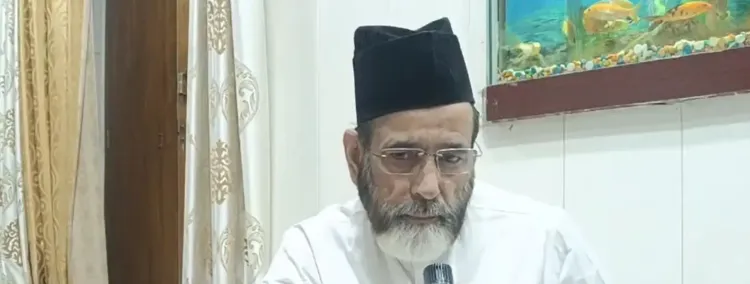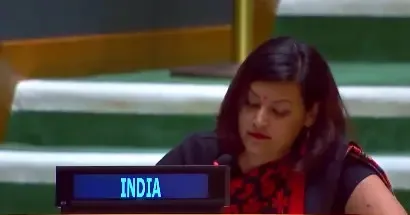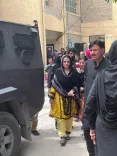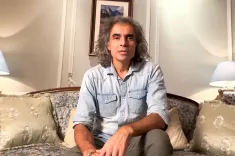What Led to Tauqeer Raza's Arrest Over the 'I Love Muhammad' Campaign?

Synopsis
Key Takeaways
- Tauqeer Raza arrested after unrest in Bareilly.
- Support for 'I Love Muhammad' campaign ignited tensions.
- Uttar Pradesh government on high alert to maintain peace.
- Chief Minister Yogi Adityanath warns against inciting riots.
- Authorities monitoring situation closely to prevent further violence.
New Delhi, Sep 27 (NationPress) Tauqeer Raza, a prominent cleric and leader of the Ittehad-e-Millat Council, was taken into custody on Saturday after his endorsement of the 'I Love Muhammad' campaign incited unrest in Bareilly, Uttar Pradesh. Officials reported that a significant crowd congregated outside his residence after he shared a video supporting the campaign. The assembly escalated, resulting in heightened tensions in the vicinity. Raza is now in 14-day judicial custody, with authorities closely monitoring the situation to avert any further disturbances.
Earlier that day, Uttar Pradesh Chief Minister Yogi Adityanath issued a severe warning following the violence in Bareilly on Friday. He stated that those who instigate riots would face repercussions so significant that “future generations will think twice before disturbing law and order.”
During the Viksit Uttar Pradesh Vision-2047 event in Lucknow, CM Yogi remarked that a cleric in Bareilly had threatened to block the city after Friday prayers but “forgot who holds power in the state.”
The Chief Minister emphasized that his administration would not permit curfews or blockades. “We made it clear there would be neither blockades nor curfews. Instead, we will teach them such a lesson that their harmful tendencies will be corrected,” he asserted.
He further commented, “Previously, rioters were welcomed at the Chief Minister’s residence and honored. Criminal elements were allowed to control districts, and governments even showed respect to professional criminals. You have likely seen numerous instances where those in power took pride in associating with the mafia’s henchmen,” he stated.
CM Adityanath accused previous governments of establishing a system of “One District, One Mafia,” where local strongmen dictated administration and ordinary citizens lived under their control.
“Agriculture suffered, jobs for youths were traded, and extortion rings thrived. Their agents auctioned job transfers and postings. We have targeted these unethical and illegal practices, which is why their supporters are now reacting vocally,” he commented.
He also claimed that prior to 2017, festivals frequently turned violent, but his government had decisively ended such occurrences.
“Sometimes bad habits are difficult to eradicate, so they must be corrected firmly. Yesterday in Bareilly, you witnessed a corrective measure. The cleric believed he could intimidate us and impose his will, but we demonstrated the strength of the state,” Adityanath noted.
The Chief Minister added that his administration had utilized bulldozers against individuals attempting to divide society along caste and religious lines.
“When corrupt individuals gain power, they misuse their authority and exploit society. We created the bulldozer specifically for such individuals,” he emphasized.
Friday's violence in Bareilly erupted when a procession carrying 'I Love Muhammad' posters and placards ignored police orders to disperse.
A sizable group took to the streets, displaying placards and posters proclaiming 'I Love Muhammad' and chanting slogans as they advanced towards Islamia Ground and Khalil School Chowk. The police resorted to force when participants chanting 'Nara-e-Taqbeer' failed to disperse despite orders.
Nevertheless, the city remained tranquil on Saturday, with no reports of any incidents.
The controversy originated on September 4 during the Eid-e-Milad-un-Nabi procession in Kanpur, Uttar Pradesh, when a 'I Love Muhammad' poster was displayed on a tent along the route, which local Hindu groups contested.
This led to rising tensions between the two communities, with Hindus claiming their posters were removed while Muslims alleged they were targeted for expressing love for the Prophet. The matter escalated on social media, with #ILoveMuhammad trending online.
Weeks later, a counter-campaign surfaced in Varanasi as religious leaders protested against the 'I Love Muhammad' posters, carrying 'I Love Mahadev' placards. The leaders deemed their protest a response to what they perceived as “provocative” actions disrupting communal harmony.









